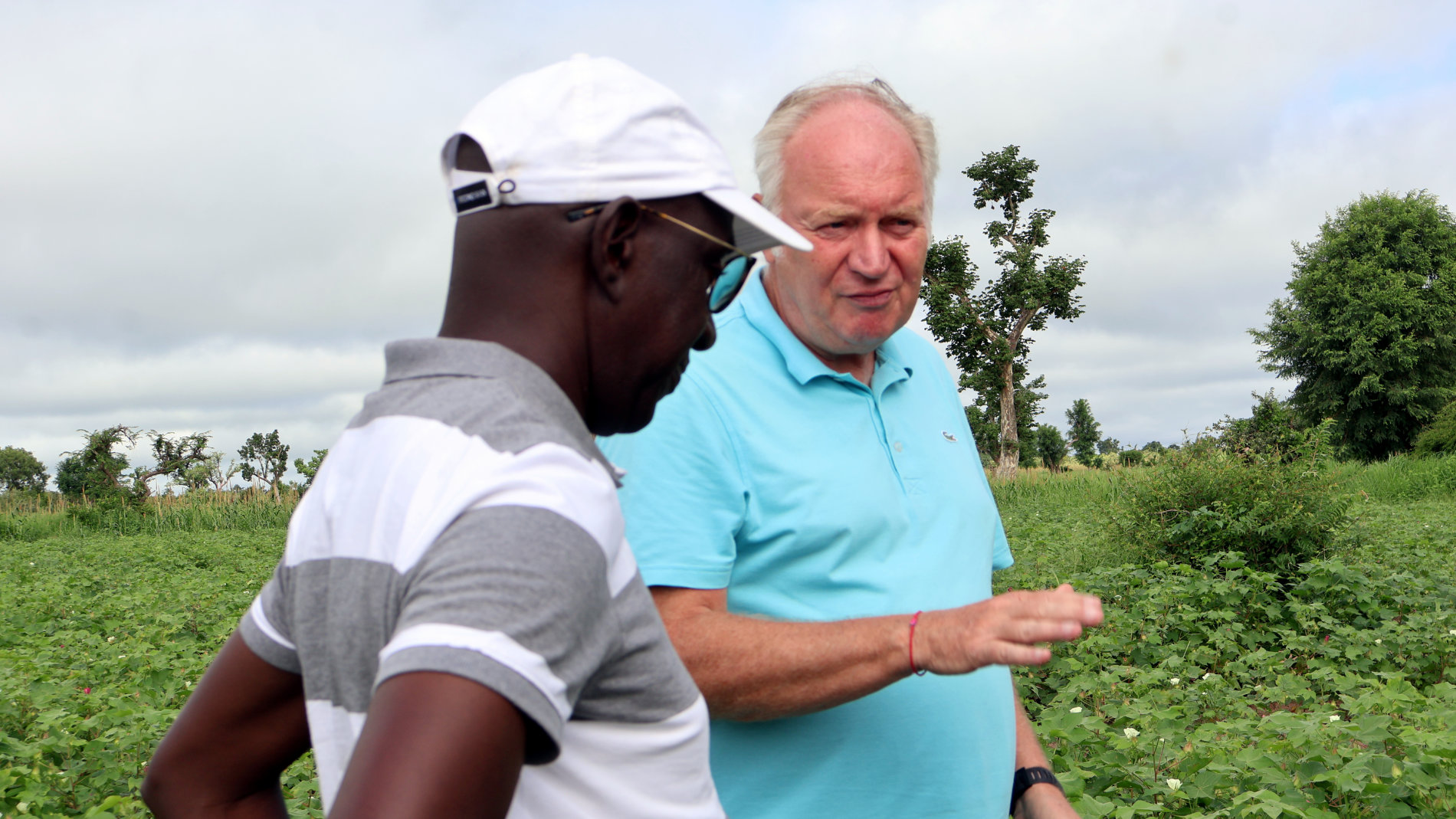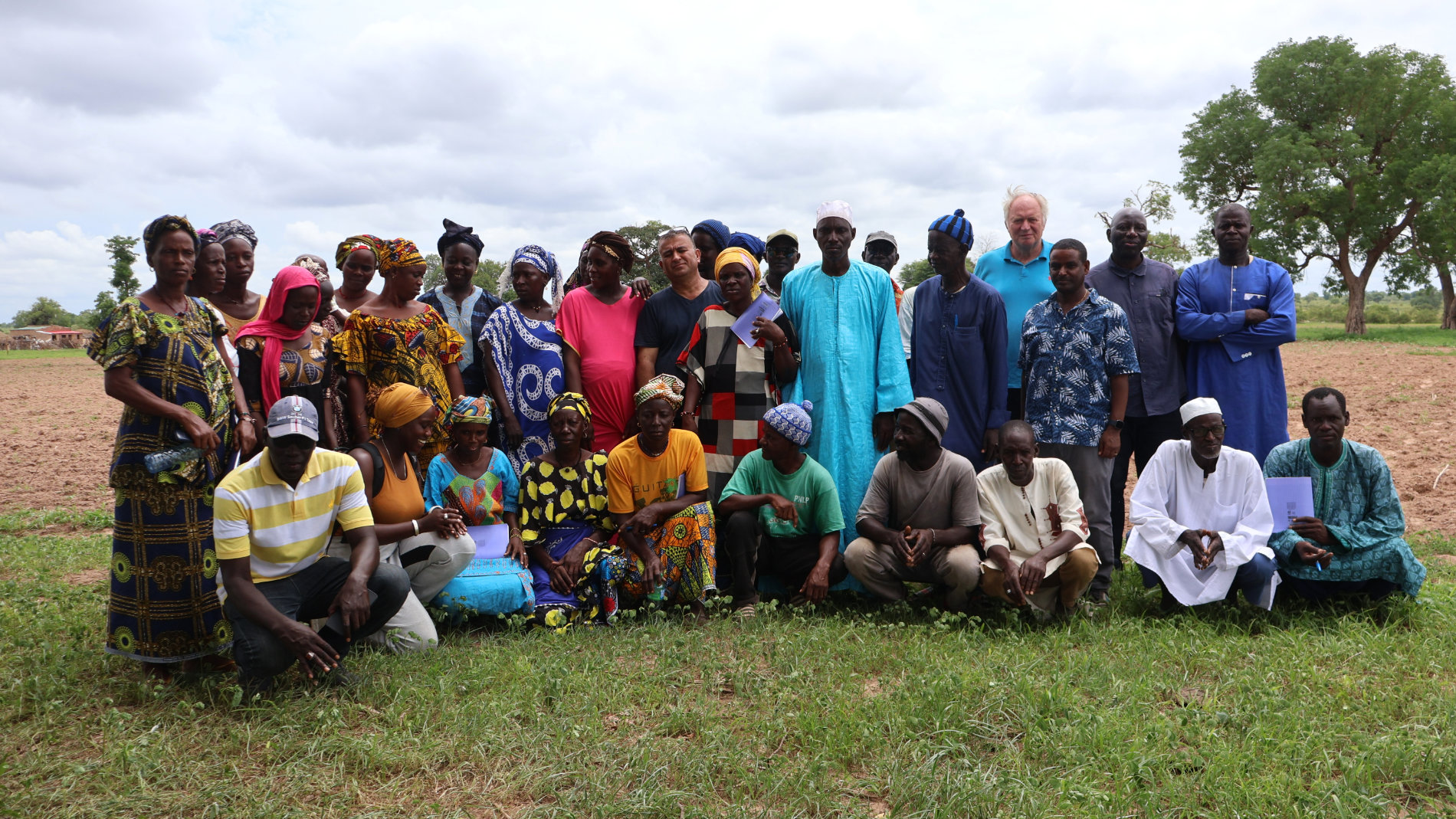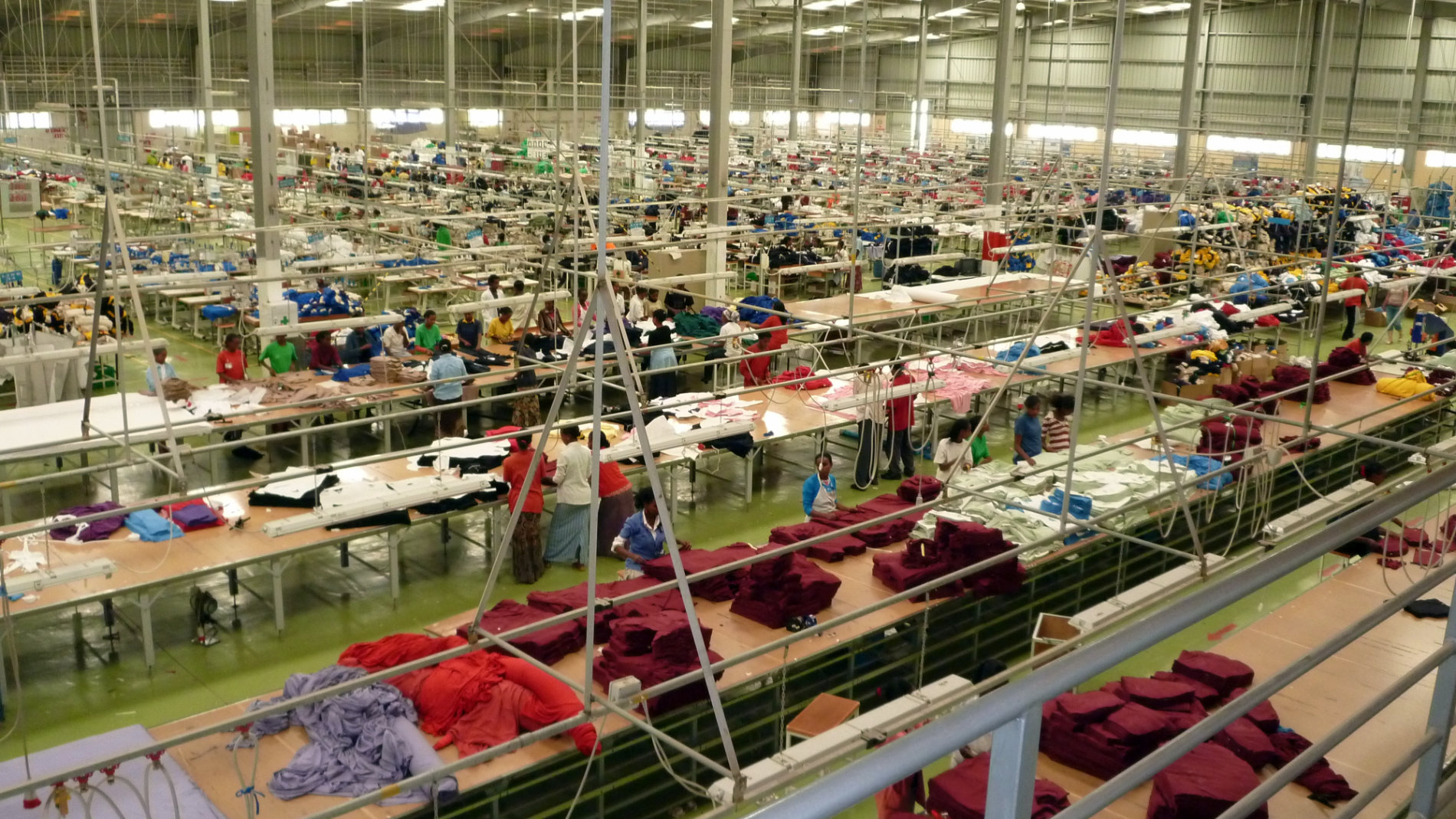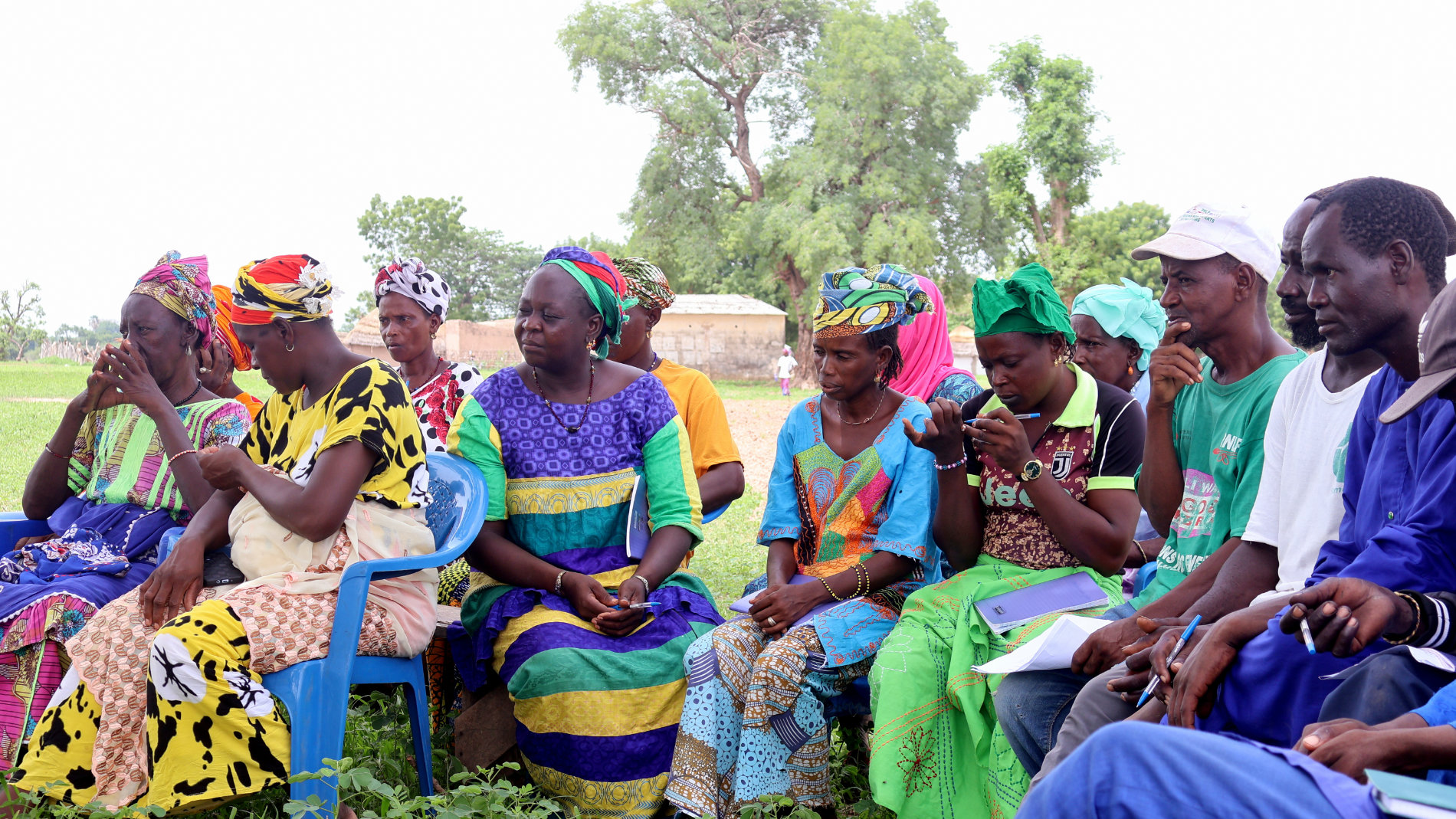Anyone looking into the African textile and apparel industry comes sooner or later across articles such as ‘Europe dumps 90% of used clothes in Africa & Asia’ and ‘Why Ghana Is Fast Fashion’s Dumping Ground‘. The theme of such pieces is why industrial nations are exporting their used textiles to Africa on a large scale as second-hand goods. Because many of these products are no longer useable, a large percentage of them are dumped, and the quantities involved are becoming an increasingly serious problem for many African countries.
Nevertheless, people who regularly visit Africa know that this is only one aspect of a diverse African textile industry. One of them is Stephan Rehlen, founder and head of RFC Consulting. He has been working as a textile expert for government agencies and private companies for over 30 years. Moreover, he has spent a long time in Asia, where he also represented several European fashion companies. As he says, "I have been involved in the entire textile chain – from fabric development to export – for well-known brands from Germany, Italy and Austria in Asia.”
Rehlen has been active in the textile sector since 2007, particularly in Africa. Every couple of months or so, he visits countries such as Ethiopia, Senegal, Cameroon and Ghana to learn about the latest developments in the African textile and garment industry at first hand. For example, in addition to carrying out analyses for the Deutsche Gesellschaft für Internationale Zusammenarbeit (GIZ), a state-owned enterprise that primarily manages development aid projects on behalf of the German Federal Ministry for Economic Cooperation and Development, Rehlen also works on the ground to connect African textile companies with international brands and retailers. He has a particular focus on two topics: organic cotton and the development of sustainable supply chains.

Organic cotton: market niche with growing demand worldwide
Currently, Stephan Rehlen is involved in a project to promote the cultivation of organic cotton in Ethiopia. The client is Gesamtmasche, the German knitwear industry association. "For climatic reasons alone, the cultivation of cotton has a long tradition in Africa," says Rehlen. It is true that Africa has been dealt a poor hand in global competition when it comes to conventional cotton cultivation, with cotton frequently being grown by small farmers. However, Africa has great potential especially when it comes to growing organic cotton. This is because, as Rehlen points out, "The areas under cultivation here are often left fundamentally in their natural state.” Also – buzzword sustainability – neither chemical fertilisers nor chemicals are used in the processing of cotton fibres, an important prerequisite for certification as organic cotton.
"Organic cotton gives many African countries the opportunity to enter a promising global market," says Rehlen. Organic cotton from Cameroon, Burkina Faso and Senegal, for example, is already certified according to GOTS, an internationally recognised standard for organic fibres. Although organic cotton is still a niche market worldwide, countries such as Ethiopia, Tanzania and Uganda have now recognised that it is a promising market segment of growing significance. According to Rehlen, the global demand for organic cotton already exceeds supply by a significant margin.

Short trade routes to Europe
What makes Africa's textile and apparel industry particularly interesting for Europe are the short trade routes to Europe's markets. Ways in which the textile supply chain between the two continents could be made more transparent in future was the subject of a project that Rehlen was involved with in Ethiopia from 2019 to 2022.
The project, which was also commissioned by Gesamtmasche, aimed to establish robust links between African and European players in the textile supply chains for cotton yarns, knitted fabrics and woven fabrics. "Our aim was to establish structures that meet the quality standards for export to European countries," says Rehlen.
Corona also dealt a blow to African textile companies by causing a drop in the consumption of textiles and thus a decline in demand worldwide. However, Rehlen adds that the pandemic has also shown how fragile global supply chains can be: "In the long run, I see Africa as a very interesting partner for Europe thanks to its close geographical proximity.”
Local from the fibre to production
Another advantage of the African textile and clothing industry emphasised by Stephan Rehlen is that everything from fibres to processing is available locally: "The continent benefits from the fact that fibre cultivation and textile production are in very close proximity to each other there," says Rehlen.
While cotton cultivation is very important, particularly in West Africa, textile processing and production takes place in countries such as Ghana, Ethiopia, Senegal and the Ivory Coast. There, African cotton fibres are used to make yarns and fabrics, which are then dyed and turned into T-shirts, polo shirts, sweatshirts or workwear. And this is often done using state-of-the-art technology: "Whether weaving, warp knitting or knitting, many textile manufacturers in Africa have state-of-the-art machinery," says Rehlen.
Sustainability also plays a role in textile processing there. According to Rehlen, dyeworks, for example, only receive a licence if they can provide evidence of water purification: "The aim in Africa is to avoid the mistakes made in some Asian countries, where a lot of money now has to be invested to clean rivers and other bodies of water."

Labour shortages: not an issue in Africa
Labour shortages are a headache for many textile companies both in Europe and in Asia. With demographic change progressing inexorably in many places and birth rates permanently low, many ready-to-wear companies, weaving mills and dyeworks are already struggling with labour shortages.
In Africa, this is not a problem. Citing the U.N. World Population Prospect 2022, the New York Times reports that more than a third of the world's young people aged between 15 and 24 could be living on the continent of Africa by 2050. According to the newspaper, some experts are already talking about a 'youthquake'. Moreover, CNBC Africa notes that the working-age population could grow by 450 million people by 2035. "This is where textile Africa scores highly," says Rehlen, "because the textile and clothing industry offers numerous employment opportunities." He has long been involved in local projects relating to the training of young Africans in the textile industry.
"The aim here is to provide young people with future-proof training in textile manufacturing, quality assurance and finishing." Rehlen is convinced that this will not only strengthen the African textile and clothing industry but also help in the fight against the glut of textile waste. "Imported used garments are often much cheaper than clothing that is produced in Africa itself." When asked how he believes the African textile and clothing industry will develop, Rehlen sums it up as follows: "Textiles are not just a tradition in Africa. They also have a bright future."
Textile Fairs in Africa
The Africa Sourcing and Fashion Week (ASFW) (Texworld, Apparel Sourcing und Texprocess Addis Ababa (licensed to Trade and Fairs East Africa Ltd.)) is Africa’s biggest textile trade fair. Held annually, it covers the entire value chain from (organic) cotton and textile technology to finished fashion ‘made in Africa’.
The ASFW focuses on promoting sustainability and is a partner of the United Nations Sustainable Development Goals (SDGs). Around 400 exhibitors and 7,000 trade visitors from over 60 countries are expected to participate in this year’s edition (in Addis Ababa from 8 to 11 November).
Allfashion Sourcing Cape Town (10 – 12 September 2024) is the premiere destination for textile enthusiasts, fashion moguls and manufacturing connoisseurs to converge, innovate and shape the future of the industry as the largest textile and fashion Hub in South Africa. As a business oriented market place for the textile and fashion industry, Allfashion Sourcing combines African creativity, design and manufacturing with international sourcing options.
